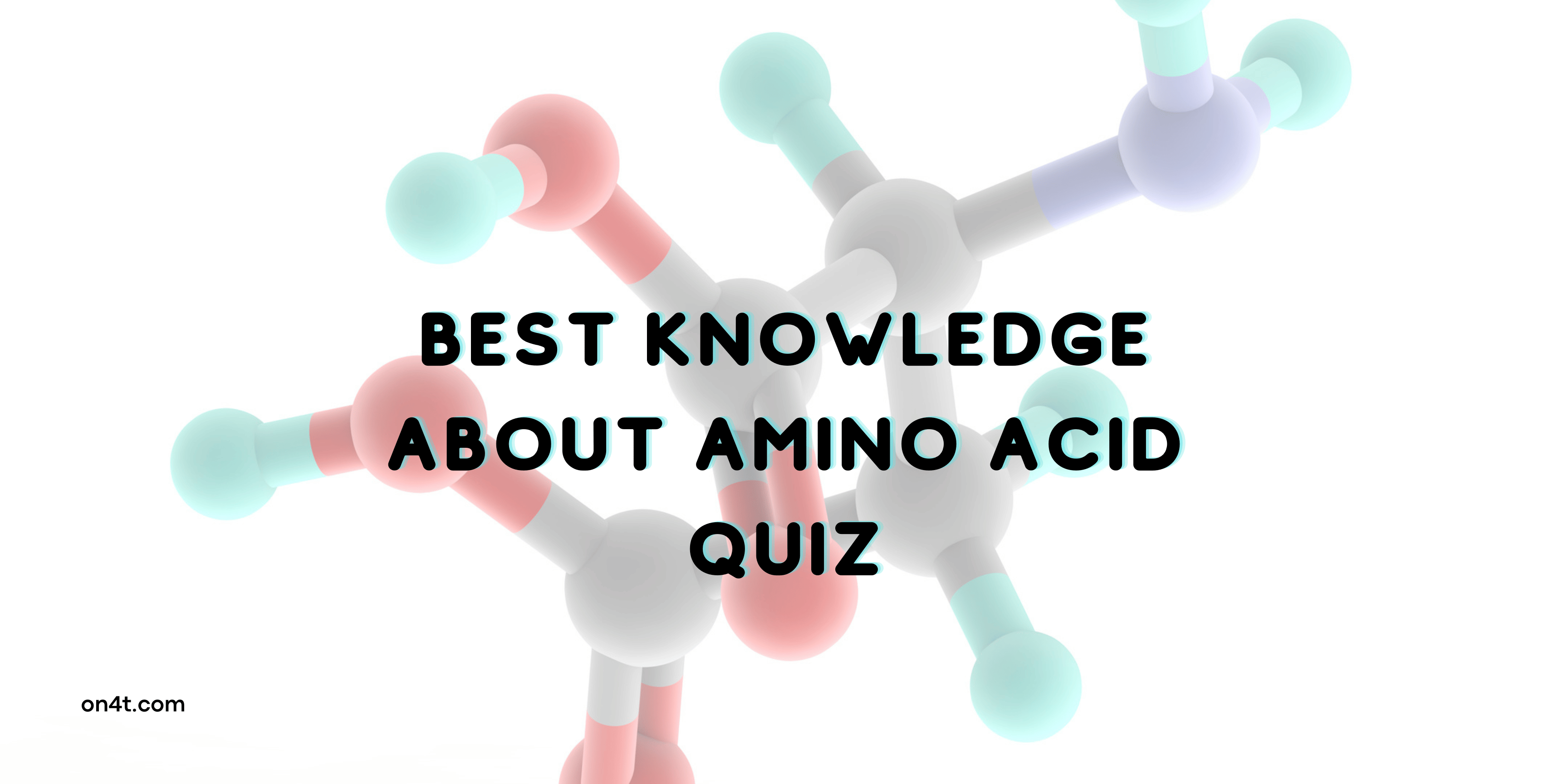Amino acid quizzes are tools designed to test your knowledge about amino acids, the building blocks of proteins in our bodies. They can include questions on the structure, function, and types of amino acids, helping you understand how proteins work.
In this article, we will discuss the best knowledge about the amino acid quiz. We’ll explore key facts, tips, and insights to help you ace quizzes on this topic, making it easier to grasp the complex world of amino acids.
Why Take an Amino Acid Quiz?
Amino acid quizzes are a valuable tool for students, researchers, and anyone interested in expanding their knowledge of the building blocks of proteins. They offer several benefits:
- Self-Assessment: Quizzes help you assess your understanding of amino acid concepts, identify areas where you excel, and pinpoint topics that need further study.
- Knowledge Reinforcement: Answering quiz questions reinforces your memory of amino acid facts and relationships, making the information more likely to stick.
- Preparation for Exams: Quizzes can serve as practice for exams and help you gauge your readiness for assessments.
Exploring Amino Acid Structures
Amino acids have a unique structure that determines their chemical properties and functions. Here’s an overview:
- Central Carbon Atom: Each amino acid has a central carbon atom bonded to an amino group, a carboxylic acid group, a hydrogen atom, and a side chain (R group).
- Side Chain: The side chain, or R group, is unique to each amino acid and determines its specific properties, such as polarity, charge, and hydrophobicity.
- Peptide Bond: Amino acids can link together through peptide bonds, forming polypeptides and ultimately proteins.
Delving Into Amino Acid Functions
Amino acid quizzes are valuable tools for assessing and reinforcing knowledge about the building blocks of proteins. They can help prepare for exams and provide insights into complex concepts.
Amino acids have a unique structure with a central carbon atom bonded to an amino group, a carboxylic acid group, a hydrogen atom, and a side chain. The side chain determines each amino acid’s specific properties.
Amino acids play crucial roles in various biological processes, including protein synthesis, enzyme activity, and hormone production.

Sample Quiz Questions
What is the primary function of amino acids?
a) Energy storage
b) Structural component of proteins
c) Hormone production
d) Neurotransmitter synthesis
Which of the following is NOT an essential amino acid for humans?
a) Lysine
b) Glycine
c) Tryptophan
d) Methionine
What is the process of linking amino acids together called?
a) Peptide bond formation
b) Polymerization
c) Condensation reaction
d) Hydrogen bonding
Which side chain property determines an amino acid’s polarity?
a) Size
b) Charge
c) Shape
d) Solubility
Which amino acid is commonly associated with neurotransmitter synthesis?
a) Alanine
b) Serine
c) Tyrosine
d) Glutamic acid
FAQs
What is the difference between essential and non-essential amino acids?
Essential amino acids cannot be synthesized by the body and must be obtained from the diet, while non-essential amino acids can be synthesized by the body.
Which amino acids are involved in protein synthesis?
All 20 amino acids are involved in protein synthesis, with different combinations forming different proteins.
How do amino acids contribute to enzyme activity?
Amino acids form the building blocks of enzymes, and their side chains participate in catalytic reactions and substrate binding.
What role do amino acids play in hormone production?
Some amino acids, such as tyrosine and tryptophan, serve as precursors for the synthesis of hormones like thyroid hormones and serotonin.
Conclusion
Amino acid quizzes are valuable tools for understanding the building blocks of proteins. They allow for self-assessment, knowledge reinforcement, and exam preparation. By exploring amino acid structure, functions. You can checkout our recent blog on wwe quiz.
Sample quiz questions, this article provides a comprehensive overview of the topic. Remember, amino acids are essential for various biological processes and play crucial roles in protein synthesis, enzyme activity, and hormone production.